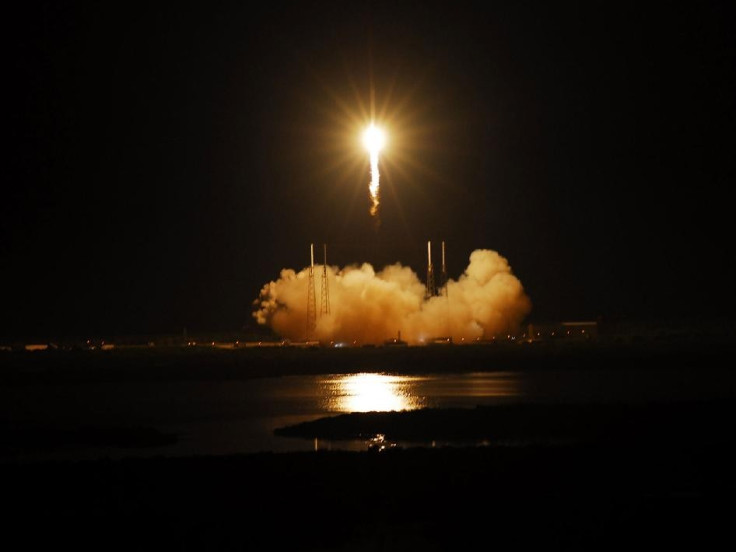Spacex: The Future of Galactic Travel [VIDEO]
Commercial spaceflight to dock at International Space Station

A new chapter in spaceflight has opened as Spacex became the first private firm to launch a vessel to the International Space Station. The launch took place at 3:44 am local time from Cape Canaveral, Florida. The Dragon capsule will take over 1,000lbs worth of supplies to the orbiting research outpost.
Three days behind schedule, the Falcon 9 Rocket was due to Launch last Saturday, but had to be postponed after a faulty check valve led to high pressure in the central engine. After fixing the problem, the launch was quickly rescheduled for the early hours of Tuesday morning.
The footage above records the launch of the Falcon 9 Rocket as well as a simulation of the capsule's planned docking at the International Space Station. The Dragon capsule is due to reach the artificial satellite on May 25th, where the six astronauts on board the ISS will use the station's robotic arm to capture the capsule and take on the provisions.
Founded in 2002 by entrepreneur Elon Musk, the South African born inventor is also the creator of internet service Paypal, and electric car manufacturer Tesla Motors. In 2010 Spacex became the first private company to put a spacecraft into orbit and return it safely to Earth. Musk took to Twitter to tell of his delight at the launch. He stated,
"Falcon flew perfectly!! Dragon in orbit, comm locked and solar arrays active!! Feels like a giant weight just came off my back."
If the journey is a success, there could be a very bright future for the young company founded by Paypal entrepreneur Elon Musk, as Spacex has a $1.6 Billion dollar contract from NASA for future supply missions.
Ever since NASA retired its Space Shuttle last year, Russia Soyuz programme has been the only means of transporting people to the International Space Station. Spacex now appears set to change that and pave the way for future galactic travel, as a new space race begins not between nations but in the private sector. It is hoped that private enterprise will breed a space-travel free market, where companies compete to create cheaper and more efficient means to travel across the solar system.
NASA's Deputy administrator Lori Garver noted, "We are ushering in a new era that embraces the innovation of the private sector along with the importance of what we do here in the government."
Despite such developments, in a bill passed last week The U.S. House of Representatives has called for NASA to choose only one company to fund a future commercial crew. NASA currently funds Spacex along with three other companies, Boeing, Blue Origin and Sierra Nevada. Republican U.S. Representative Bill Posey stated that the current system is not sustainable.
"At some point, NASA is going to have to decide to focus on proceeding with one or two launch providers and this bill tells NASA to move to the down select date sooner which ultimately focuses more dollars on these chosen launch vehicles."
With Spacex the first out of the gates with its flight to the ISS, Musk will be hopeful that if NASA is forced into making a choice, his company is selected. After this test flight, future projects include development of the Falcon Heavy launch system, as well as a NASA robotic mission to Mars in 2018.
Star Trek's Scotty's Ashes Fired into Space: SpaceX Allows James Doohan to 'Boldly Go' to Final Frontier [VIDEO]
© Copyright IBTimes 2025. All rights reserved.






















